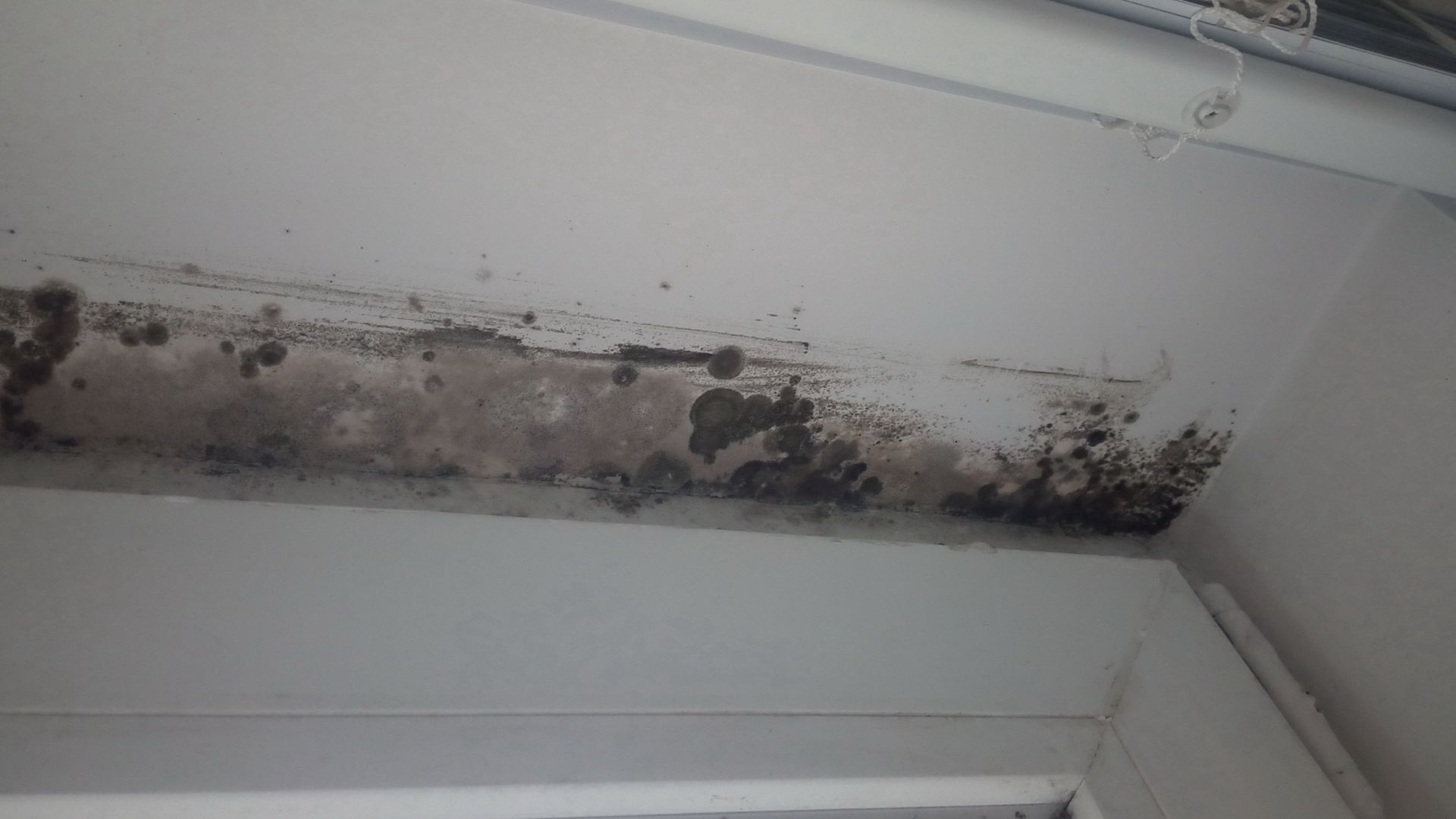Your New Home Has Mold Growing In It. What Now?
Buying a home is one of the biggest investments most people will ever make—so discovering a serious issue like hidden mold after closing can feel like a devastating betrayal. If the previous owner failed to disclose the problem—or worse, actively covered it up—you may be left wondering if there’s anything you can do now that you’re tens of thousands of dollars deep into remediation. The good news? You may have legal and financial options to recover your losses. This guide walks you through the steps to take, questions to ask, and important legal considerations if you're facing an undisclosed mold nightmare.

You’re Not Alone—Mold Disputes Are Common
Discovering mold after moving in is unfortunately common, and many buyers don’t realize they may have legal options. While it’s frustrating, you’re not powerless. Laws exist to protect buyers from deception or omission. If you’re $25K deep into remediation due to someone else’s dishonesty, there are actions you can take to seek recovery.
 Alexander Davronov, Wikimedia Commons
Alexander Davronov, Wikimedia Commons
Did The Seller Disclose Mold Issues in Writing?
Somewhere in among the mountain of paperwork, there will be a disclosure form containing issues with the home. Did the seller disclose the mold in this list? If not, it may add to your case. Keep any emails or texts between you and the seller that might show dishonesty.
Review Your Home Inspection Report
Pull up the inspection report you received during escrow. Your home inspector could have missed signs of water damage or mold growth during their inspection. Review the inspection report carefully and look for terms like "musty odor" or "moisture intrusion."
Understand The Types Of Misrepresentation
Misrepresentation comes in three main legal flavors: innocent (didn’t know), negligent (should have known), and fraudulent (knew and lied). Fraud cases carry the highest chance of legal victory and damages. If your seller actively concealed mold, you may be able to sue for full reimbursement or even punitive damages depending on your state.
Check Your State’s Disclosure Laws
Real estate disclosure laws vary dramatically by state. Many states require sellers to disclose all the things that are wrong with the home, even if they're minor items. Elsewhere, it’s “buyer beware” and you're on the hook for anything wrong after the fact. Consult a local attorney to see what your state's law says about who's responsible.
Look For Signs Of Concealment
There are plenty of ways to conceal mold growth. Fresh paint and new drywall are among the most common. These conceal mold, but don't destroy the spores and aren't considered effective remediation. Look for anything that looks off as you walk through your new home. Take pictures.
Did You Sign An “As-Is” Clause?
Even if you bought the home “as-is,” you might still have legal protection. If you can prove that the seller lied or covered up a known mold issue, you may still have legal grounds to sue, despite the presence of the "as-is" clause.
Consult A Real Estate Attorney, Yesterday
Time is of the essence here, you need to consult a real estate attorney as soon as possible. Some may offer free consultations or a low fee. Considering that you're $25,000 in the hole, it's well worth paying for professional legal advice.
Gather Evidence Of Mold & Remediation Costs
Start compiling every invoice, contractor report, mold test result, and photo you have. Create a clear timeline showing when the issue was discovered and how much remediation has cost. The stronger your documentation, the better your chances in mediation or court. Judges respond well to clear, professional records showing financial harm and concealment.
Talk To Your Homeowners Insurance Provider
Contact your insurance provider to ask if mold is covered in your specific situation. Some policies exclude mold unless caused by a sudden event like a burst pipe. Still, it’s worth reporting the problem—they might help cover associated costs or recommend legal avenues. Always document the claim process and get everything in writing.
Consider Mediation Before A Lawsuit
Mediation can be quicker and far less expensive than litigation. In many states, it’s even required before filing a lawsuit. A mediator can help you and the seller reach a financial settlement without going to court. If successful, it saves time and legal fees while still recovering part or all of your losses.
Was The Seller A House Flipper Or Landlord?
Professional sellers such as house flippers, real estate investors, or landlords are often held to higher disclosure standards under the law. If your seller falls into this category, you may have a stronger case. These sellers are generally assumed to have more knowledge about property conditions and can’t claim ignorance so easily.
Inspect Any Renovations That Were Done
Look at the seller’s renovations—especially in bathrooms, kitchens, basements, and attics. Sloppy or rushed jobs might have been designed to cover mold instead of fixing the root problem. A contractor can help assess whether work was cosmetic or structural. Poor-quality work is often a sign the seller tried to hide deeper damage.
What About The Real Estate Agent’s Role?
If the seller’s agent knew about mold but failed to disclose it, they could also be held liable. Real estate agents have a duty to disclose known material defects. If you suspect the agent helped cover up the issue—or turned a blind eye—talk to your attorney about naming them in your claim as well.
Sue For Fraud, Breach Of Contract, Or Negligence
You may be able to file a lawsuit under one or more of these legal theories: fraud (intentional deception), breach of contract (failure to meet the terms of sale), or negligence (failure to act with reasonable care). A lawyer can determine the most strategic path based on the evidence and the state’s laws.
Check The Statute Of Limitations
Every state has a legal deadline for filing a lawsuit, known as the statute of limitations. These often range from 2 to 5 years and usually start from when you discovered (or reasonably should have discovered) the problem. Waiting too long can eliminate your legal right to recover damages, so act promptly and consult legal counsel.
 Photo By: Kaboompics.com, Pexels
Photo By: Kaboompics.com, Pexels
Small Claims Court May Be An Option
If your losses are within your state’s small claims court limit—usually $5,000 to $15,000—you might be able to file a claim without a lawyer. It’s more informal, faster, and cheaper than traditional court. This might not cover all $25K, but it could recoup part of your remediation costs if other options fail.
Could You Recover Full Remediation Costs?
If fraud or concealment is proven in court, yes—you may be entitled to full reimbursement. Some cases even award additional compensation for reduced property value, legal fees, or emotional distress. The key is building a solid, evidence-based case that clearly shows the seller knowingly misled you during the home buying process.
 Photo By: Kaboompics.com, Pexels
Photo By: Kaboompics.com, Pexels
Should You Go Public?
If legal efforts stall or feel too costly, consider filing a complaint with your state’s real estate board, attorney general, or the Better Business Bureau. You can also leave factual online reviews—but avoid exaggeration or accusations you can’t prove, as that could open you up to defamation liability. Stick to verifiable facts only.
Don’t Shoulder This Alone
This situation feels overwhelming, but you’re not alone—and you’re not stuck. From legal options to insurance support to state protections, there are multiple paths forward. Reach out to professionals, document everything, and act quickly. You deserve to live in a safe, healthy home—and to hold dishonest sellers accountable for their actions.
You May Also Like:
I Started A Dog-Walking Business. Bought A Van, Forgot Insurance. Now It's Totated. Help!
Vintage Barbie Dolls Selling For Big Bucks
























